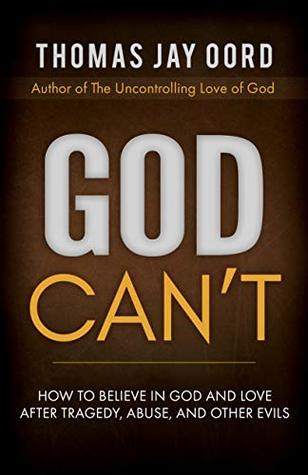More on this book
Community
Kindle Notes & Highlights
Read between
October 7 - November 16, 2019
The Father delights in the child, says Proverbs. The writer of Hebrews uses “chastens” instead of “delights in.” He’s likely influenced by the translation of the Old Testament called “the Septuagint,” not the text scholars today use to translate the Old Testament.
Paul’s parents had been taught Joni’s view: “God punishes everyone He accepts as a son.” But if Paul had to believe God is violent and oppressive, he would rather be an atheist.
The fickle God view leads to questions survivors know so well! If God always loves, why doesn’t God always protect? Why doesn’t God stop horrors others inflict? If God can choose to block the harm that comes from evil, wouldn’t a loving God prevent most if not all of it? Does God decide whether we experience the destructive consequences of evil?
There are natural negative consequences to sin and evil.
Rather than think God sometimes consents to sin’s effects and other times does not, we should think sin naturally results in ruin. The bad consequences aren’t up to God, they flow naturally from bad choices, habits, accidents, or systems.
Sin is often its own punishment.
Many people accept the less radical form of this fifth belief. It says God invites us to cooperate with God’s work to promote healing, goodness, and love. We can participate in God’s plan to make our lives and the world better. The more radical form says God needs us and others for love to win. Our contributions are essential to establishing overall well-being. Without cooperation, God cannot attain these positive outcomes. Creatures play a necessary part in God’s goals to restore creation and help us all flourish.
Those who endorse the All God view believe free will is an illusion. From their perspective, chance, randomness, and luck are illusions too. Their view says God brings about every rape, murder, torture, disease, genocide, cancer, and holocaust. All God advocates usually claim these evils are good in some mysterious way.
The All God view provides an ultimate standard for meaning: whatever God does. But it provides no grounds to think our lives truly matter.
“Steve, I know you don’t understand,” the Sunday school teacher replied, “but yes, God knows that.” Steve realized that a God who foreknows and foreordains evil must be immoral. So he announced he didn’t want anything to do with this God. He never returned to church.36
People who accept the conventional view begin by thinking God is essentially “beyond.” Some call this “divine transcendence.” The God “out there” could have remained detached but decided to “be here.” God descended to dwell among creatures, freely choosing to love them.
Advocates of this view assume God could decide not to love us.
“As extreme as it sounds,” Michael wrote in one email, “many Christians unwittingly picture God like a North Korean leader whose justice is arbitrary and who expects fear-based devotion. Distant and impersonal, he demands respect. This God neither cherishes his subjects nor prioritizes their best interests.”
If indispensable love synergy is true — and I think it is, many will need to rethink their view of God. Most haven’t considered the possibility God needs cooperation to accomplish the goals of love.


